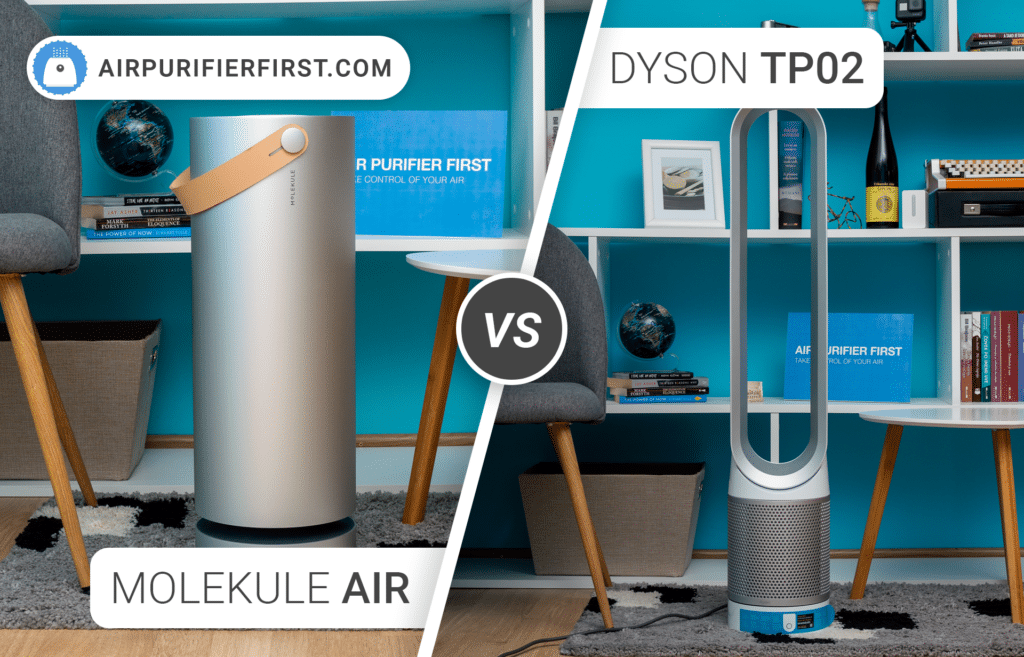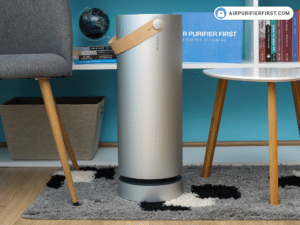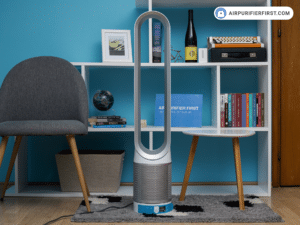This time, I’ve prepared a comparison between the Molekule Air and Dyson TP02 air purifiers. These two premium air purifiers are known for their excellent build quality and exciting features.

The Molekule Air is intended for rooms of up to 130 sq. ft., while the Dyson TP02 is suitable for slightly smaller rooms, covering up to 110 sq. ft. Both devices clean the air in the recommended room sizes approximately 4.8 times per hour.
I must admit that their coverage is smaller than what I expected, falling within the range of some low-budget air purifiers like the Levoit Core 200S or the Shark HP102. This is definitely something that could be improved, particularly considering the premium price tag of these Molekule and Dyson models.
Regarding filtration technology, Molekule uses its innovative PECO filtration technology along with a pre-filter. On the other hand, Dyson uses a two-stage filtration system consisting of HEPA Glass and activated carbon filters.
Other features worth mentioning are a smart app that is available on both and an air quality sensor that is exclusive to the Dyson TP02. I will compare their specifications and test results in detail in the following table, so I strongly recommend checking it.
Molekule Vs Dyson
 |
 |
|
| Manufacturer | Molekule | Dyson |
| Model | Air | TP02 |
| Dimensions | 8.25 x 8.25 x 23 inches | 40 x 4.4 x 7.5 inches (101,6 x 11.2 x 19.1 cm) |
| Room Coverage (4.8 ACH) | 130 sq. ft. (12 m²) | 110 sq. ft. (10 m²) |
| Performance Ratings | ||
| Filtration Technology | Pre-filter and PECO-filter | HEPA Glass Filter and Activated Carbon Filter |
| Filter Replacement Indicator | Yes | Yes |
| Filter Longevity | 3 months (pre-filter), and 6 months (PECO-filter) | about 12 months |
| Power | 80W | 56W |
| Operating Costs Ratings | ||
| Fan Speeds | 3 – Silent Mode, Auto Mode, and Boost Mode | 10 – Speed 1, Speed 2, Speed 3, Speed 4, Speed 5, Speed 6, Speed 7, Speed 8, Speed 9, and Speed 10 |
| Air Quality Sensor | No | Yes |
| Auto Mode | Yes (but not the real auto mode) | Yes |
| Smart App | Yes | Yes |
| Display Lock | Yes | No |
| Noise Levels | 42.0 – 67.4 dBA | 41.1 – 59.6 dBA |
| Noise Ratings | ||
| Warranty | 2-year | 2-year |
| In-Depth Review | Molekule Air | Dyson TP02 |
| Price | Check Price on Amazon | Check Price on Amazon |
Which One Does It Better?
What particularly impresses me about the Molekule Air is its exceptional build quality, especially the aluminum casing. However, there is room for improvement in the Molekule smart app, as well as in terms of maintenance costs and motor power. Additionally, I strongly believe that an air quality indicator is a must-have feature in this price range.
On the other hand, the Dyson TP02 demonstrated significantly better performance, requires slightly lower maintenance costs, and has an incredibly functional smart app. Furthermore, it features a built-in air quality sensor, which is just one more advantage over the Molekule.
Overall, I pick the Dyson TP02 as the winner in this comparison and my absolute buying recommendation.
If you have any questions regarding these two air purifiers, please feel free to use the comment box below the article.
Leave a Reply